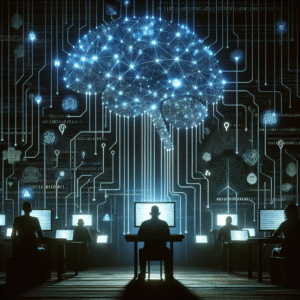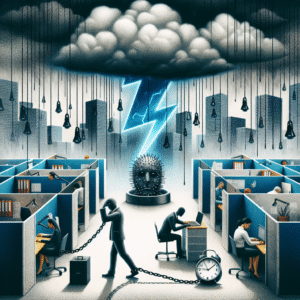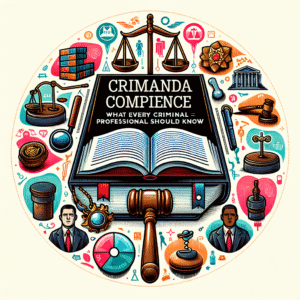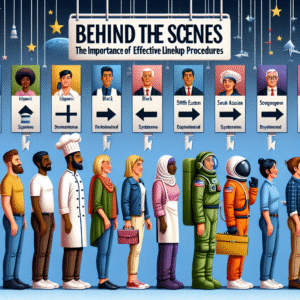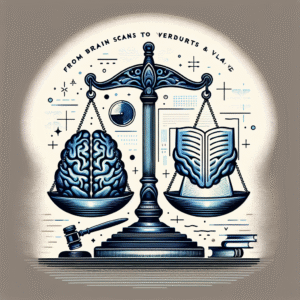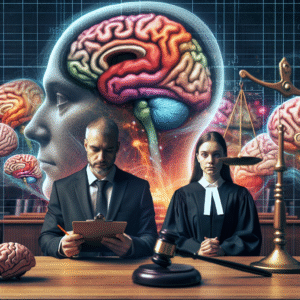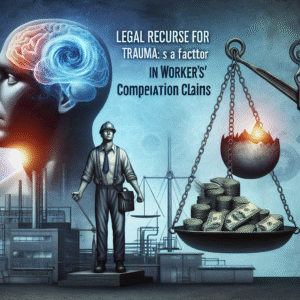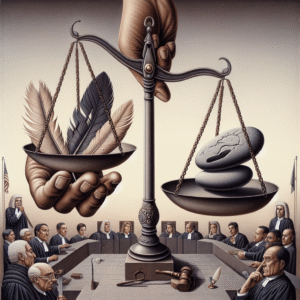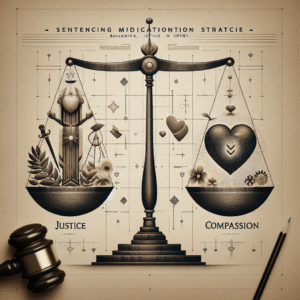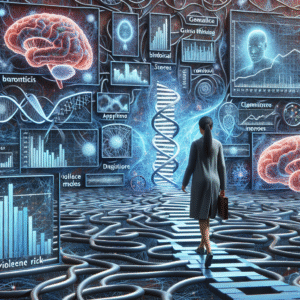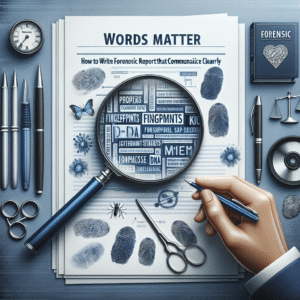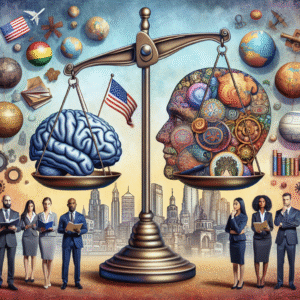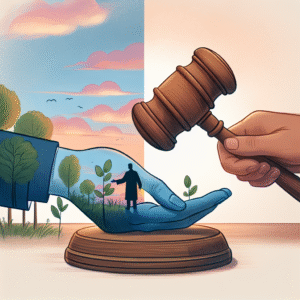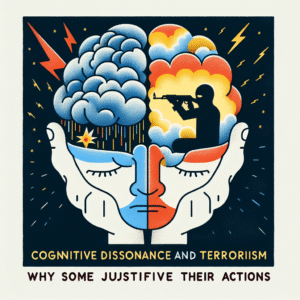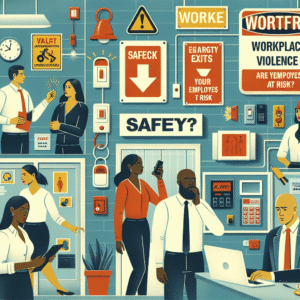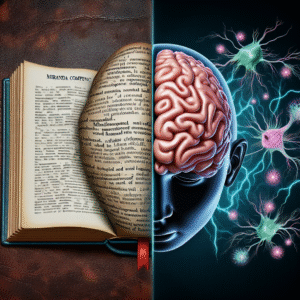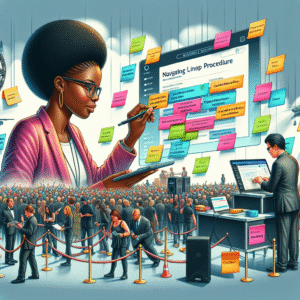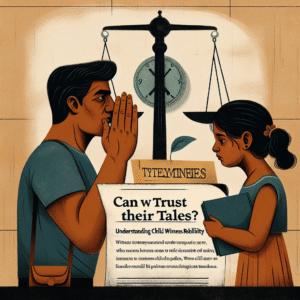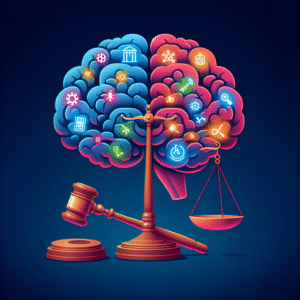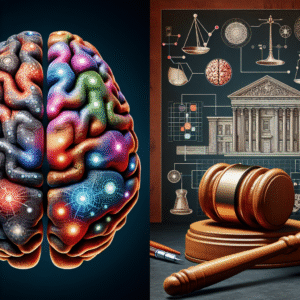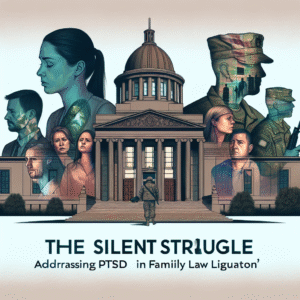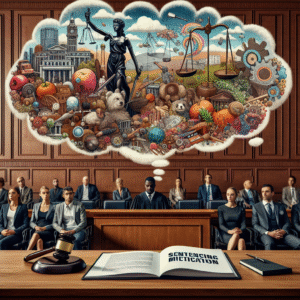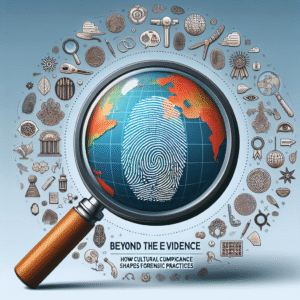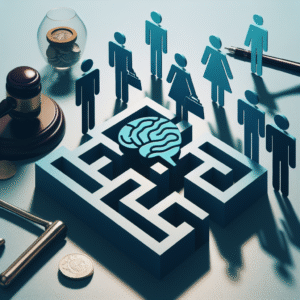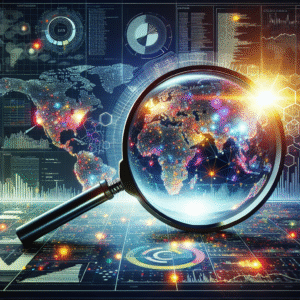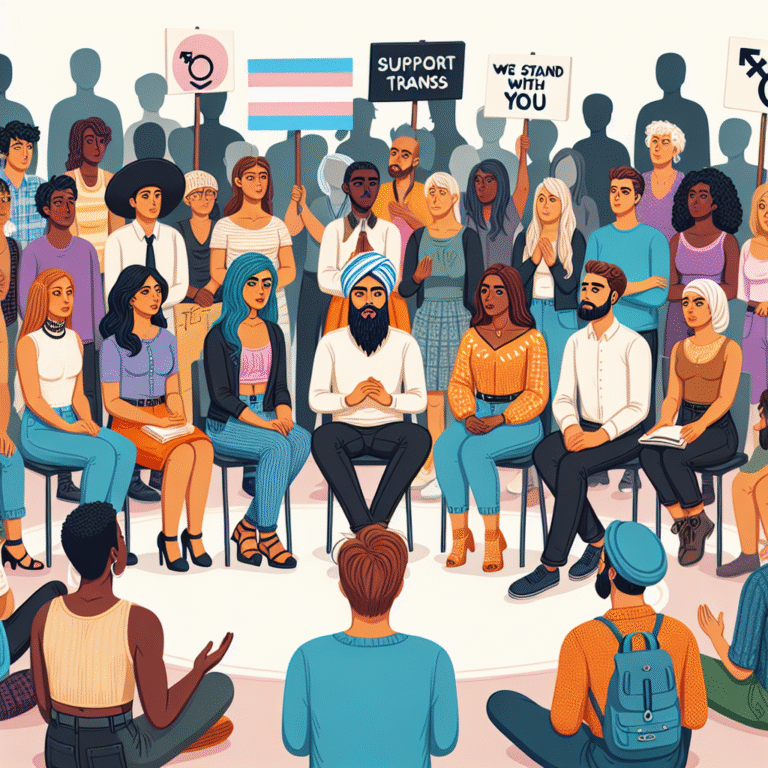Introduction In an increasingly digitized world, the landscape of crime has shifted from the physical realm to cyberspace, giving rise to a new breed of offenders. This evolution necessitates a deeper understanding of the minds behind these crimes. Cybercrime’s Mental Playbook: Exploring Behavioral Patterns of Online Offenders uncovers the intricacies of how these individuals think, operate, and evade justice....
False Memory Syndrome
Introduction: Discovering the Hidden Patterns In the labyrinthine world of criminal investigations, where every clue can lead to a breakthrough or a dead end, a scientific approach has emerged as a beacon of hope for law enforcement agencies: geographic profiling. This powerful tool is an essential component in solving mysteries, allowing investigators to pinpoint potential suspects based on the...
Introduction Imagine a crime scene where traditional forensic methods fall short. The evidence is subtle, the details are murky, and the suspect remains elusive. Enter behavioral evidence analysis — a groundbreaking approach that’s changing the game in forensic science. As investigations evolve, understanding human behavior becomes just as critical as analyzing fingerprints or DNA. In this article, we delve...
Introduction Workplace violence is a pressing issue that looms over various industries, threatening not only the safety of employees but also the vitality of organizations. In today’s fast-paced and often stressful work environments, the repercussions of violence are far-reaching. This article delves deep into The Impact of Workplace Violence on Employee Well-Being and Productivity, highlighting the profound effects that...
Introduction In today’s fast-paced and ever-evolving work environment, ensuring the health and well-being of employees is more critical than ever. With rising concerns about workplace accidents, absenteeism, and employee burnout, the notion of fitness for duty has taken center stage. But what does it truly mean, and why should organizations prioritize regular assessments? In this article, we delve deep...
Introduction In the realm of criminal justice, few topics are as essential and pivotal as Miranda Competence—an intricate balance between an individual’s rights and law enforcement’s duty to uphold the law. The significance of Miranda rights reverberates throughout legal proceedings, making it crucial for every criminal justice professional to be well-versed in Miranda Competence: What Every Criminal Justice Professional...
Introduction Have you ever wondered how detectives manage to extract confessions from hardened criminals or uncover hidden truths in tense situations? The art of interrogation is a nuanced realm of criminal investigations, a field where psychology, strategy, and communication skills intertwine. In our exploration of “Interrogation 101: Techniques Used to Uncover the Truth in Criminal Investigations,” we’ll dive into...
Introduction Imagine a high-stakes courtroom drama unfolding, where every detail can pivot the outcome dramatically. The prosecution’s and defense’s strategies hinge not just on the evidence but on how the witnesses are lined up. Herein lies the essence of our topic: "Behind the Scenes: The Importance of Effective Lineup Procedures." Much like a skilled conductor harmonizing an orchestra, effective...
Introduction Have you ever shared a cherished memory with a friend, only for them to recount it in a way that feels entirely foreign? Memories are powerful constructs that define our identities, influence our decisions, and shape our relationships. Yet, as we delve into the complexities of human memory, a crucial question arises: Can we trust our memories? Exploring...
Introduction Imagine a courtroom filled with tension, where every word weighs heavily on the future of a young child and potentially on the lives of adults involved. The stakes are remarkably high, and in many cases, deciphering the truth hinges on navigating child testimonies. These testimonies can be both poignant and precarious, as children often bring unique perspectives and...
Introduction Brain injuries are often termed the “invisible epidemic” due to their complex symptoms and life-altering consequences. Each year, millions suffer from these injuries, yet many remain unaware of their rights and the compensation they may be entitled to. Understanding how to navigate the complex legal landscape surrounding brain injury litigation is crucial. This article, From Diagnosis to Compensation:...
Introduction Imagine a courtroom where decisions are not solely dependent on witness testimonies or expert opinions, but also on compelling evidence from brain scans. This isn’t a scene from a futuristic sci-fi movie, but a burgeoning reality in today’s judicial system. "From Brain Scans to Verdicts: Exploring the Intersection of Neuroscience and Law" delves deep into this fascinating interplay...
Introduction In an era where the intersection of law and science grows increasingly complex, assessing criminal minds through the lens of neuropsychology has emerged as a critical field of study. The idea that a person’s mental state can influence their culpability in a crime raises profound implications for the legal system. Understanding how neuropsychology affects legal outcomes is essential...
Introduction Imagine standing at the edge of a tragedy, a death that leaves family and friends grappling with unanswered questions. What drove someone to take their life? Was it a sudden decision or the culmination of long-standing issues? In such complex scenarios, forensic psychology plays a pivotal role, and one of its most powerful tools is the psychological autopsy....
Introduction In the ever-evolving landscape of workers’ compensation, one critical area that often goes overlooked is the psychological impact of workplace incidents. Legal Recourse for Trauma: PTSD as a Factor in Workers’ Compensation Claims is more than a mere legal concept; it represents an essential avenue for many employees seeking justice and recompense for trauma-induced psychological injuries. With the...
Introduction In our fast-paced world, trauma is an unfortunate reality that affects countless individuals across all walks of life. Whether stemming from childhood experiences, accidents, or significant losses, unresolved trauma can manifest in myriad ways—physically, emotionally, and socially. Yet, how often do we recognize the signs? Recognizing the signs of trauma is essential for providing meaningful support and fostering...
Introduction "An eye for an eye only ends up making the whole world blind." This poignant observation by Mahatma Gandhi encapsulates the breathtaking complexity surrounding the death penalty—a subject that has sparked heated debates across societies and legal systems. The looming question persists: Justice or Injustice? A critical look at the effectiveness of the death penalty reveals the dual...
Introduction In the realm of criminal justice, sentencing carries heavy implications, not just for the offenders, but for society at large. The concept of Sentencing Mitigation Strategies: Balancing Justice and Compassion in Court emerges as a beacon of hope in a system often criticized for its rigidity. This article delves into how mitigating circumstances, empathy, and a focus on...
Introduction In a world where violence manifests in various forms, understanding how to navigate the complexities of violence risk has never been more critical. From policy-makers to mental health professionals, the ability to accurately assess violence potential can save lives and aid in rehabilitation. This article delves into "Navigating the Complexities of Violence Risk: An Overview of Appraisal Models"...
Introduction In today’s fast-paced, interconnected world, the stakes have never been higher when it comes to assessing and managing threats. From cyber-attacks to natural disasters, organizations must be agile and informed to navigate the complexities that lurk around every corner. This article will detail From Data to Decisions: The Importance of Accurate Threat Assessment, emphasizing that the ability to...
Introduction In the realm of forensic science, words hold the power to make or break a case. When the stakes are as high as criminal justice, clarity and precision in forensic reports are not just important; they are essential. Forensic reports serve as authoritative documents that document evidence and detail findings, scrutinized not only by fellow scientists but also...
Introduction In a world where cultural diversity is often at the forefront of social discourse, the intersection of culture and psychology is one of critical importance, particularly in forensic settings. The role of cultural awareness in forensic psychology is not merely a supplementary aspect; it is an essential pathway to fairer outcomes. Ignorance of cultural nuances can lead to...
Introduction In the complex world of forensic psychology, professionals face a myriad of ethical dilemmas that challenge their judgment and integrity. The environment is fraught with responsibility—the decisions made can have substantial implications for individuals’ lives and society at large. From criminal assessments to custody battles, the stakes are high, and the choices are often difficult. This article explores...
Introduction Imagine standing in front of a judge, the weight of your struggles with mental illness visible in your demeanor. Instead of facing a harsh sentence, you’re offered a lifeline—a chance to receive treatment and support rather than further punishment. This scenario embodies the essence of mental health courts, a transformative approach that shifts the focus from penalizing those...
Introduction Substance abuse remains a pressing concern across societies, impacting not only individuals but also families, communities, and healthcare systems. The journey from addiction to recovery is rarely straightforward, often requiring personalized treatment plans tailored to unique circumstances. At the heart of this process is a crucial first step: the substance abuse evaluation. This article delves into From Assessment...
Introduction Imagine crucial moments of your life—like your wedding day, the birth of your child, or a family vacation—suddenly twisted and reshaped by the complex machinations of your mind. Memories, once thought to be static and reliable, can alter dramatically due to the phenomenon known as False Memory Syndrome. In Remembering the Unremembered: Navigating the Landscape of False Memory...
Introduction In a world fraught with conflict and tension, the art of negotiation shines as a beacon of hope. Hostage situations, often chaotic and unpredictable, demand not just expertise but a deeply-rooted human connection. Herein lies the crux of our exploration: Voices in the Dark: The Role of Empathy in Hostage Negotiation. Empathy isn’t merely a soft skill; it’s...
Introduction In an age where data reigns supreme, the power of analytics can no longer be ignored, especially when it comes to understanding complex and sensitive issues such as radicalization. Radicalization, the process through which individuals come to adopt extremist beliefs, poses a significant challenge to societies worldwide. As governments and organizations seek effective strategies to prevent extremism, the...
Introduction In a world rife with conflict and division, the phenomenon of terrorism stands as a troubling testament to the complexity of human belief systems. Why do individuals align themselves with ideologies so far removed from mainstream societal norms? One key psychological concept sheds light on this, and that is cognitive dissonance. Understanding cognitive dissonance and terrorism: why some...
Introduction In today’s digitally connected world, the dark underbelly of the internet has become increasingly accessible and sophisticated. Cybercriminals are not just tech-savvy hackers; they are often skilled manipulators, weaving psychological tactics into their schemes. Behind the Screen: How Psychological Manipulation Fuels Cybercrime reveals the mechanics of this intricate web, where emotional triggers and social engineering form the backbone...
In our increasingly interconnected world, the subtleties of location can reveal profound truths. Welcome to a realm where crime-solving meets cutting-edge geography. Behind the Map: Exploring the Techniques of Geographic Profiling is not just about laying down coordinates; it’s a journey into the heart of criminal psychology, geography, and investigative technique. As we navigate through this fascinating terrain, we’ll...
Introduction In the realm of criminal justice, where the stakes are high, the integration of psychology into investigative practices has never been more vital. Psychology Meets Investigation: The Science of Behavioral Evidence Analysis is not just a conceptual framework; it’s a bridge connecting the abstract elements of human behavior with the concrete realities of forensic investigations. With crime rates...
Introduction In today’s fast-paced and often stressful work environments, the issue of workplace violence has becoming increasingly urgent. Companies across various sectors—from corporate offices to manufacturing plants—are grappling with a pressing question: Workplace Violence: Are Your Employees at Risk? In a world where emotional and psychological stressors abound, understanding the indicators of workplace violence and implementing effective prevention strategies...
Introduction In a world where workplace safety and mental wellness are paramount, navigating fitness for duty policies takes center stage. These policies serve not only as guidelines for employers but also as essential safeguards for employees, ensuring that both individual performance and overall workplace integrity remain intact. Navigating Fitness For Duty Policies: A Guide for Employers and Employees provides...
Introduction Ever found yourself pondering how the complexities of mental health intertwine with legal systems? Particularly when it comes to the Miranda rights, an essential aspect of the criminal justice system, the intersection of mental health and Miranda competence becomes profoundly significant. Imagine a scenario where an individual, struggling with mental health issues, is apprehended and questioned by law...
Introduction Imagine a dimly lit room, a single table, and two chairs facing each other. On one side, a suspect shifts nervously, being scrutinized by a seasoned investigator whose goal is to uncover the truth. The stakes are high—not just for the individual on the hot seat, but for law enforcement, victims, and society as a whole. In the...
Introduction In the fast-paced world of event planning, one of the most critical yet often overlooked aspects is navigating lineup procedures. Whether it’s a concert, a trade show, or a corporate gala, the organization of lineup procedures can make or break the overall experience. Imagine a sold-out concert where fans are left waiting in line for an interminable period....
Introduction Have you ever questioned the reliability of your memories? What if the events you vividly recall were not as you believed? Memory contamination, a phenomenon where recollections are altered by misleading information, poses profound implications not only for our understanding of human psychology but also for the legal system. It challenges the very foundation of eyewitness testimony and...
Introduction Imagine standing in a courtroom, the air thick with anticipation, as a child is called to the stand. Their small frame, trembling slightly, prepares to recount events that could shape lives and influence justice. At that moment, the question arises: Can We Trust Their Tales? Understanding Child Witness Reliability is not just a critical query; it’s the foundation...
Introduction Imagine experiencing a traumatic brain injury (TBI) that alters the course of your life. The implications extend far beyond the physical; they often seep into social, emotional, and financial realms. In the legal landscape, navigating a brain injury case can feel like a labyrinthine journey filled with complex twists and turns. Understanding how the law intersects with brain...
Introduction Imagine a courtroom where a defendant’s thoughts can be visually displayed, where neuroimaging technology serves as both a window into the mind and a tool for justice. While this scenario may sound like science fiction, advancements in forensic neuroimaging are making it a reality. The intersection of the brain’s workings and its implications for criminal justice is a...
Introduction Imagine entering a courtroom, where traditional evidence is complemented—or even challenged—by brain scans and psychological assessments. The world of neuropsychological forensics has dramatically transformed the landscape of legal evidence. From the days when courtroom judgments were solely based on witness testimony and physical evidence to a future where the brain itself can be scrutinized for insights into behavior...
Introduction Imagine a chilling crime scene where answers seem to lie just out of reach. The question of "why" looms large, begging for clarity. Within the realm of criminal investigations, understanding the psychological landscape of individuals involved in criminal behavior can be as crucial as analyzing physical evidence. This is where psychological autopsy comes into play—a process that dives...
Introduction Picture a courtroom. Tension fills the air as families are torn apart, and emotions run high. For those navigating the waters of family law, the struggle isn’t always just legal; it’s deeply personal, often intertwined with mental health challenges like Post-Traumatic Stress Disorder (PTSD). The Silent Struggle: Addressing PTSD in Family Law Litigation isn’t just another topic to...
Introduction In a world increasingly aware of mental health and psychological distress, effective trauma assessment stands as a cornerstone for professionals in various fields. Whether you’re a psychologist, social worker, healthcare provider, or educator, understanding how to accurately assess trauma can significantly impact treatment outcomes. Trauma manifests in diverse ways, and recognizing its nuances is essential for effective intervention....
Introduction In recent years, the debate surrounding capital punishment has intensified, sparking passionate discussions across the globe. Capital punishment, often viewed as a necessary deterrent, is now increasingly scrutinized through a moral lens. The conversation has shifted: From Deterrence to Morality: Reevaluating the Foundations of Capital Punishment is not just a title; it represents a crucial evolution in how...
Introduction Imagine standing in a courtroom, the atmosphere thick with tension and uncertainty. The judge is about to render a decision that could alter a person’s life forever. What if the outcome were influenced not only by the facts of the case but also by the context surrounding the offender? The intricacies of sentencing mitigation reveal a profound truth:...
Introduction In an age where public safety and individual rights are both top priorities, the criminal justice system strives to find ways to minimize harm while ensuring fairness. As homicides, assaults, and other violent crimes continue to plague societies worldwide, one pivotal innovation has emerged from the realm of psychology and criminology: violence risk appraisal. This essential tool not...
Introduction In an increasingly interconnected world, understanding and mitigating risks is more crucial than ever. Organizations of all sizes face threats ranging from cybersecurity breaches to physical safety concerns. “Navigating the Landscape of Threat Assessment: Strategies for Success” is not just a necessity for corporate giants but also a vital practice for small businesses and individual practitioners. By effectively...
Introduction In the realm of forensic science, the written word carries as much weight as the evidence itself. Every note, every observation, and every analysis compiled into a forensic report can influence the course of justice. The topic "From Evidence to Exposition: Key Elements of Forensic Report Writing" is not just an academic exercise; it’s a purposeful journey that...
Introduction In a world increasingly defined by cultural diversity, the intersection of forensics and cultural competence has become critical in ensuring justice. Legal systems often rely heavily on physical evidence, but addressing cultural contexts can dramatically enhance the effectiveness of forensic practices. The phrase "Beyond the Evidence: How Cultural Competence Shapes Forensic Practices" encapsulates this very essence. In this...
Introduction In a world where psychological assessments can influence life-altering decisions—ranging from criminal sentencing to child custody disputes—the role of forensic psychologists has never been more crucial. Yet, while they stand as the vanguard of mental health expertise in legal settings, they also navigate a treacherous landscape rife with ethical dilemmas. This article explores the complex world Beyond the...
Introduction In an ever-increasingly complex world, the intersection of mental health and the legal system is a crucial area of public concern. According to the World Health Organization, approximately one in four individuals will experience a mental health issue at some point in their lives. This staggering statistic raises an urgent question: How do we navigate mental health and...
Substance abuse is a pervasive issue that affects individuals, families, and communities worldwide. The complexities surrounding addiction necessitate careful evaluation and assessment to develop effective treatment plans. Understanding Substance Abuse Evaluations: Key Questions Answered provides a roadmap for individuals seeking clarity on this pivotal topic. In an era where mental health is increasingly recognized as vital, grasping the nuances...
Introduction Imagine sitting in a therapist’s office, recounting a traumatic experience only to discover later that the memories may be distorted or entirely fabricated. This chilling scenario highlights a profound issue in the realm of mental health: False Memory Syndrome. Revisiting the Past: The Implications of False Memory Syndrome in Therapy is not just a fleeting topic; it’s a...
Introduction In an increasingly unpredictable world, understanding how to navigate crises is more important than ever. When a hostage situation arises, the stakes are incredibly high—not only for the victims but also for law enforcement, negotiators, and communities. Crisis Management 101: Lessons Learned from Real-Life Hostage Scenarios explores the invaluable insights gained from past incidents, equipping readers with critical...
Introduction In today’s rapidly changing world, the specter of extremism looms large, affecting communities globally. The need to preempt violent radicalization has never been more urgent. Preventing Extremism: The Role of Radicalization Assessment in Community Safety is not just a buzzword; it’s a critical component in building safer, more cohesive societies. As individuals increasingly turn to extremist ideologies, the...
Introduction In a world increasingly shaped by the interconnectedness of cultures and societies, the issue of terrorism looms larger than ever. Understanding the forces behind radicalization and violent extremism is not only crucial for policymakers but also for communities striving for harmony. The group dynamics and terrorism relationship exemplifies how communal influence can either uphold social cohesion or ignite...
Introduction In an era where technology reigns supreme, the emergence of the digital landscape has given rise to a new breed of criminal—the cybercriminal. These "digital deviants" operate in the shadows of society, exploiting vulnerabilities in technology for personal gain. But what compels individuals to engage in such illicit activities? This exploration of The Digital Deviant: Psychological Factors Driving...
Introduction In an age where data is deemed the new oil, the capacity to decode its complexity is not just a luxury—it is essential. One of the most transformative methodologies harnessing the power of data is geographic profiling. This powerful technique is revolutionizing how law enforcement agencies, private investigators, and even businesses understand patterns in human behavior. As we’ve...
